
Web3’s rapid expansion has exposed a critical pain point: the fragmented, repetitive, and privacy-invasive nature of identity verification. Users are forced to complete Know Your Customer (KYC) checks across every new dApp or blockchain platform, resulting in inefficiency and KYC fatigue. The idOS Network addresses this challenge with a decentralized, reusable identity infrastructure that puts users back in control of their data and enables seamless onboarding across the decentralized ecosystem.

Self-Sovereign Identity: User-Controlled, Privacy-Preserving KYC
At the core of idOS Network is self-sovereign identity (SSI). Unlike legacy systems where identity data is siloed and controlled by centralized authorities, idOS empowers individuals to own, encrypt, and manage their credentials. This includes sensitive KYC details, which are stored in a decentralized fashion and shared only with explicit user consent. The network’s architecture is compliant with GDPR and similar frameworks, ensuring that users decide both who can access their data and for how long. This paradigm shift aligns perfectly with the ethos of privacy-preserving DID wallets and the broader Web3 movement.
Decentralized Storage and Cross-Chain Portability
idOS leverages a distributed network of nodes for encrypted data storage. Even if individual nodes go offline, user credentials remain accessible and secure. This decentralized model removes single points of failure and mitigates the risks associated with centralized storage providers. The result: portable digital identity that persists across chains and platforms.
Crucially, idOS is chain-agnostic. Whether a dApp is built on Ethereum, an EVM chain, or another L1/L2 ecosystem, idOS enables seamless integration without requiring extra software or plugins. This cross-chain compatibility is essential for universal Web3 identity management and supports frictionless onboarding for both users and developers.
Key Features of idOS Network for Reusable KYC
-
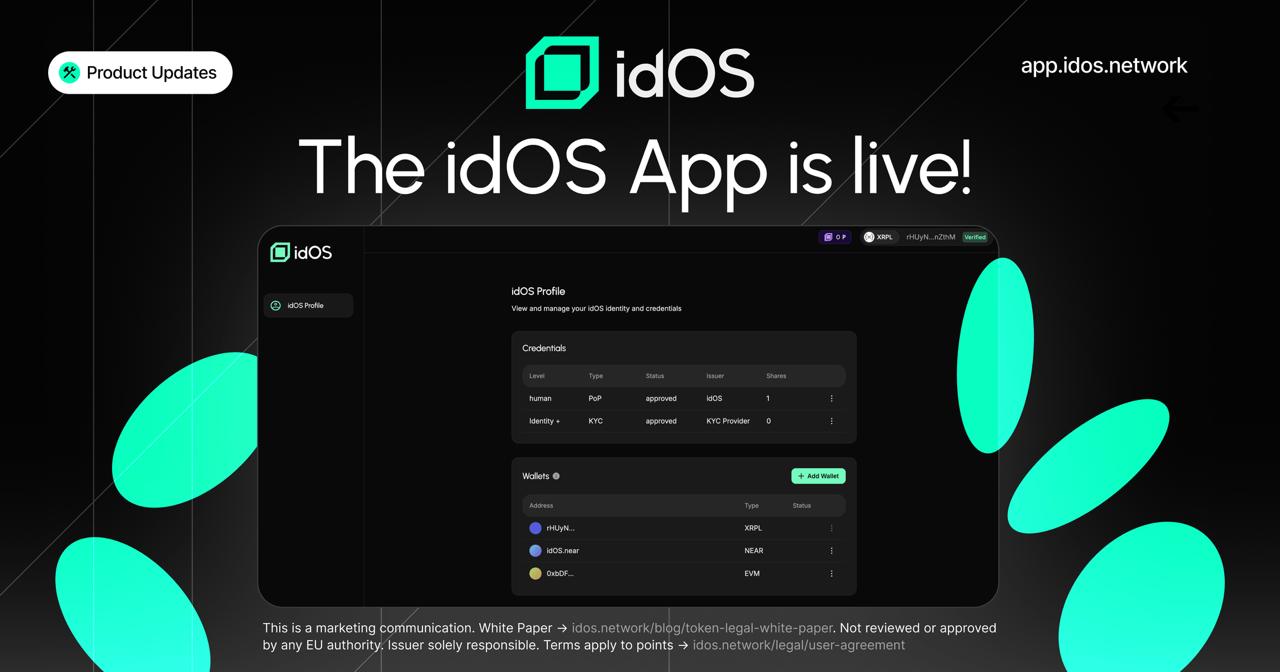
Self-Sovereign Identity Control: Users maintain full ownership of their encrypted personal data, granting and revoking access at will, in compliance with GDPR and privacy regulations.
-
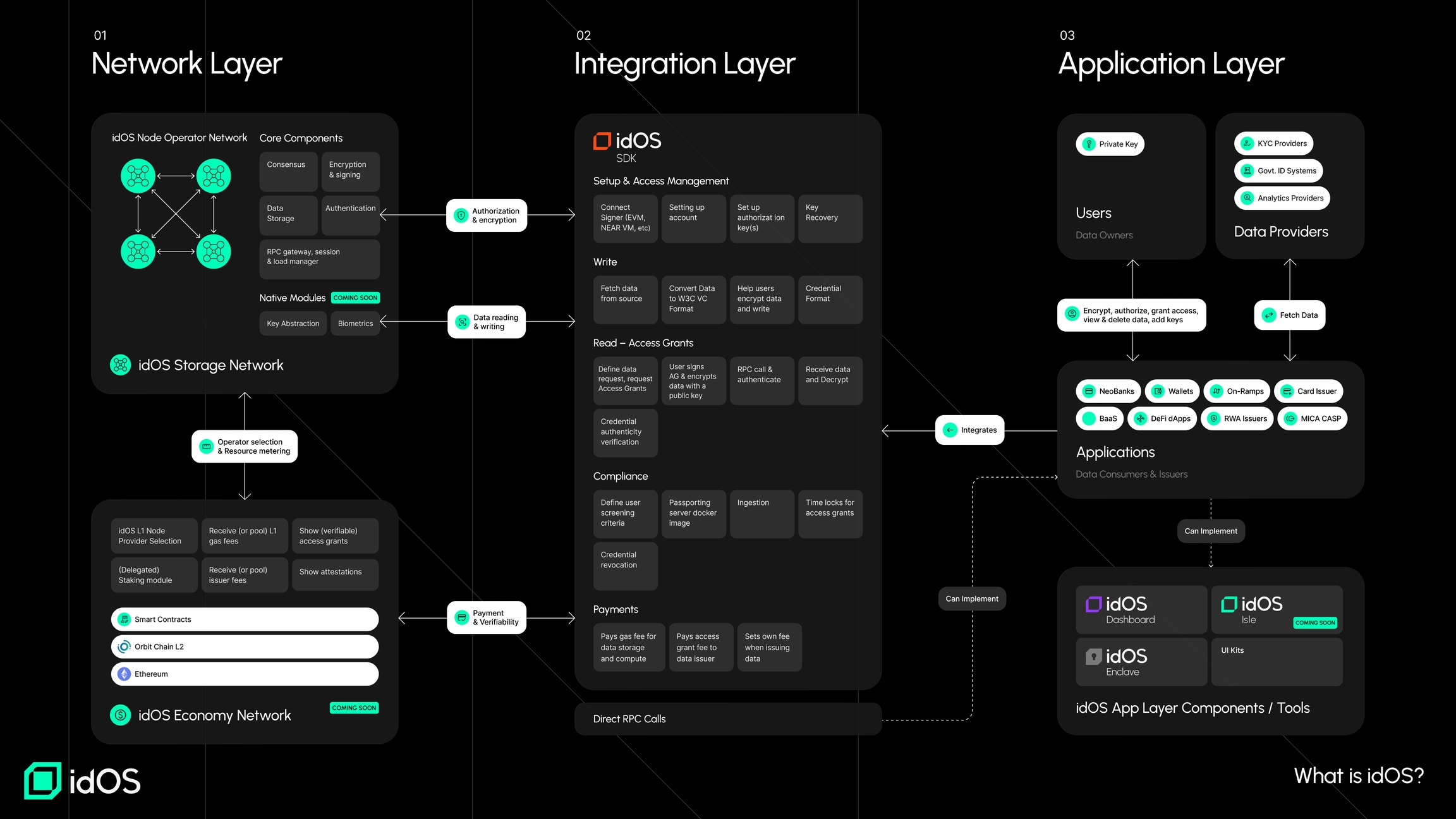
Decentralized, Encrypted Storage: Personal information is distributed across a network of nodes, ensuring high availability and robust security even if individual nodes fail.
-
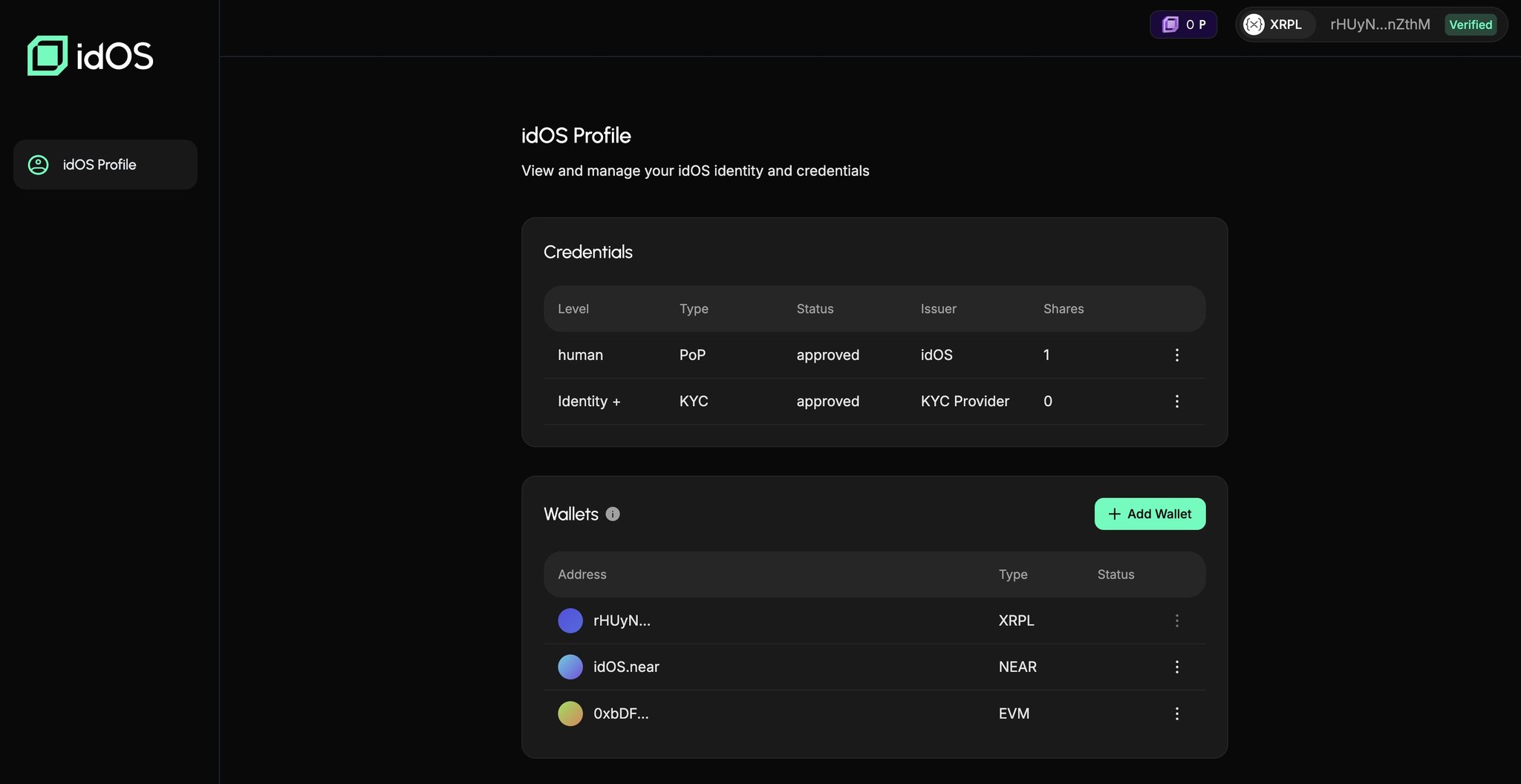
Reusable KYC Credentials: Complete KYC verification once and seamlessly reuse credentials across multiple Web3 dApps, reducing onboarding friction and redundancy.
-
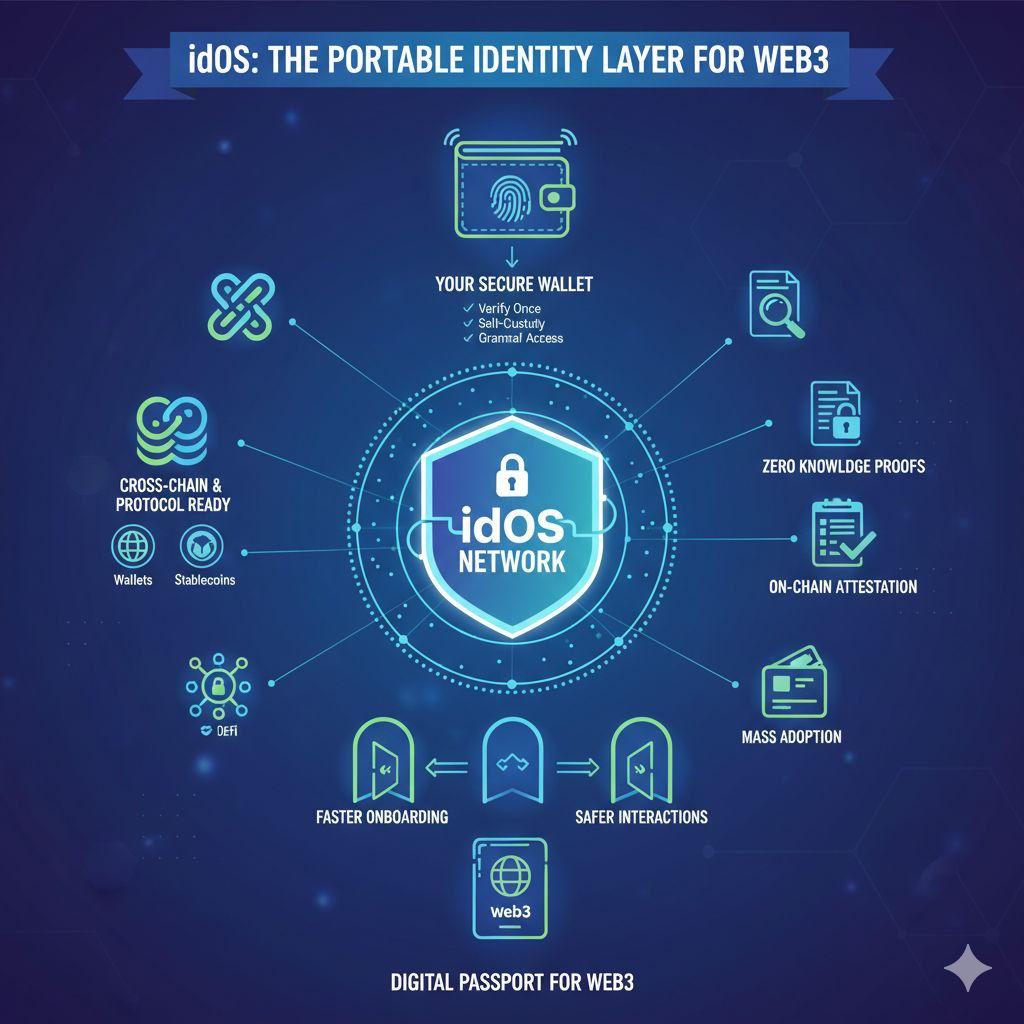
Chain-Agnostic Integration: Compatible with various blockchain ecosystems, idOS enables cross-chain identity verification without extra software requirements.
-
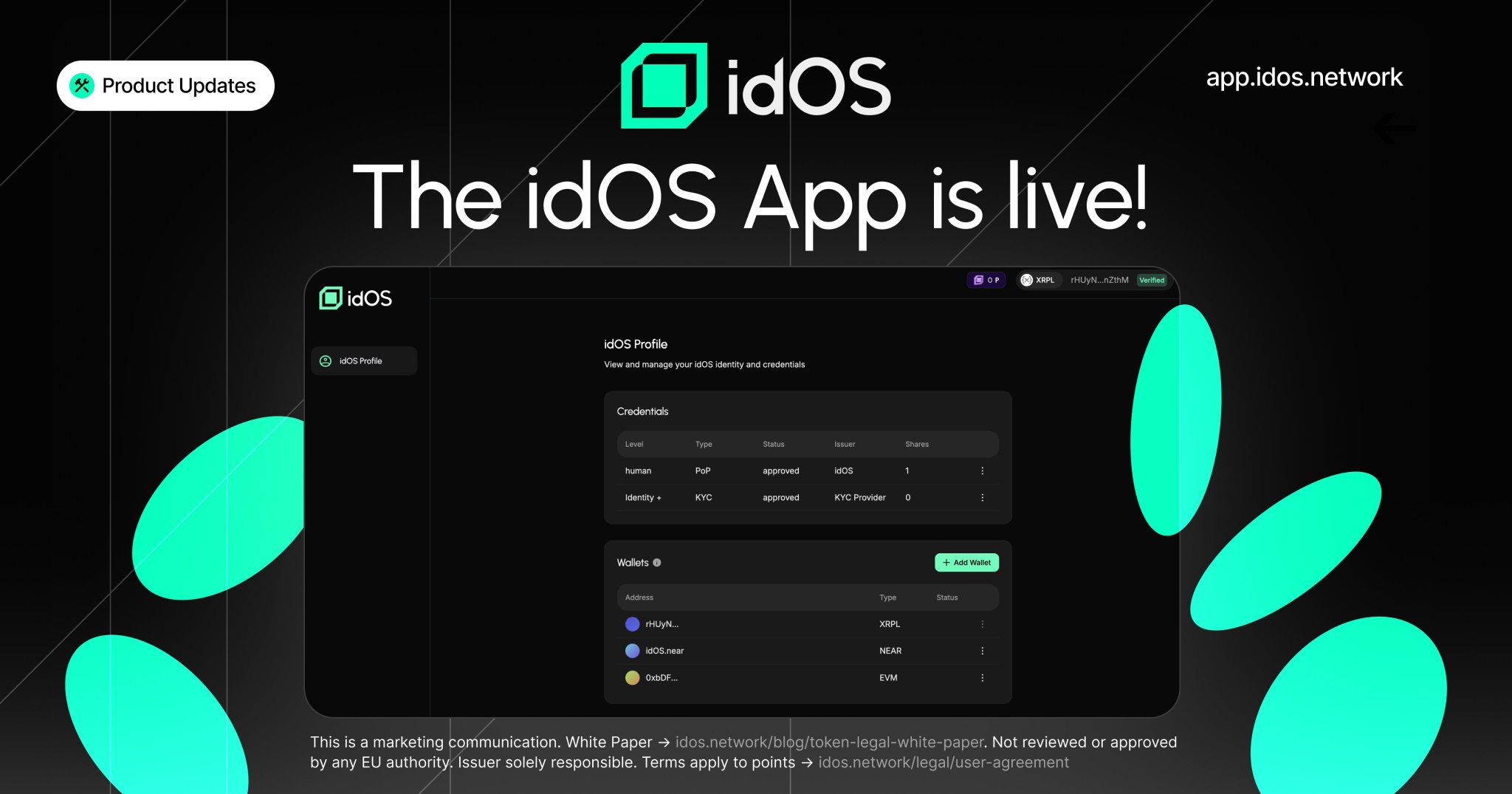
Multi-Party Computation (MPC) Security: Utilizes MPC technology in partnership with Partisia Blockchain to split key management among multiple parties, ensuring no single entity holds the complete private key.
KYC Once, Transact Everywhere: The Power of Reusable Verification
The most disruptive feature of idOS Network is its approach to reusable KYC. Through mechanisms like Passporting and Data Ingestion, users complete KYC verification a single time. These credentials can then be securely reused across any participating dApp or service. This eliminates redundant processes while maintaining strict compliance with Anti-Money Laundering (AML) requirements. Data consumers can retain necessary information only for legally mandated periods, further reducing privacy risks.
This architecture not only streamlines the user experience but also helps dApps onboard new users rapidly, an essential factor for mainstream adoption of decentralized finance (DeFi), NFT platforms, stablecoins, and beyond.
Enhanced Security Through Multi-Party Computation (MPC)
The security model underpinning idOS is equally innovative. By partnering with Partisia Blockchain, idOS employs multi-party computation (MPC) to safeguard private keys. Instead of any single entity holding the full key, MPC splits computation among multiple independent parties, ensuring no single point of compromise. This advanced cryptographic approach significantly boosts both privacy and resilience against attacks.
For privacy advocates and enterprise developers alike, this means a new standard of trust-minimized identity management. The combination of decentralized storage, user-controlled access, and MPC-enhanced security makes idOS Network a compelling backbone for the next generation of Web3 onboarding and compliance solutions.
But the real-world impact is already visible. With over 50,000 unique users onboarded in just 10 days after launch, idOS demonstrates that frictionless, privacy-preserving KYC is not just possible but in high demand. This momentum signals a shift away from siloed identity silos toward an ecosystem where users can “KYC once, transact everywhere. ” The implications for reducing onboarding barriers in DeFi, NFT marketplaces, and regulated digital asset platforms are profound.
Developer Experience and Ecosystem Growth
From a technical perspective, idOS offers robust APIs and SDKs for seamless integration with self-sovereign identity wallets and decentralized applications. Developers can tap into the idOS infrastructure to request, verify, and manage user credentials without handling raw personal data, drastically reducing compliance overhead and liability. The open-source ethos of the project further accelerates adoption and community-driven innovation.
For organizations building on multiple chains or targeting global audiences, idOS’s chain-agnostic design is a game-changer. It eliminates the need for fragmented KYC solutions and offers a unified approach to onboarding users across L1s and L2s. This not only improves user experience but also aggregates liquidity and participation across the broader Web3 ecosystem.
Why Portable Digital Identity Matters for Web3
The future of digital identity is portable, interoperable, and privacy-first. As regulatory scrutiny intensifies and users demand greater control over their data, solutions like idOS Network stand out by delivering on both compliance and user empowerment. The ability to manage a single identity across DeFi protocols, NFT platforms, wallets, and more, without sacrificing privacy, will be foundational for Web3’s next growth phase.
Top idOS Network Use Cases in Web3 Identity
-
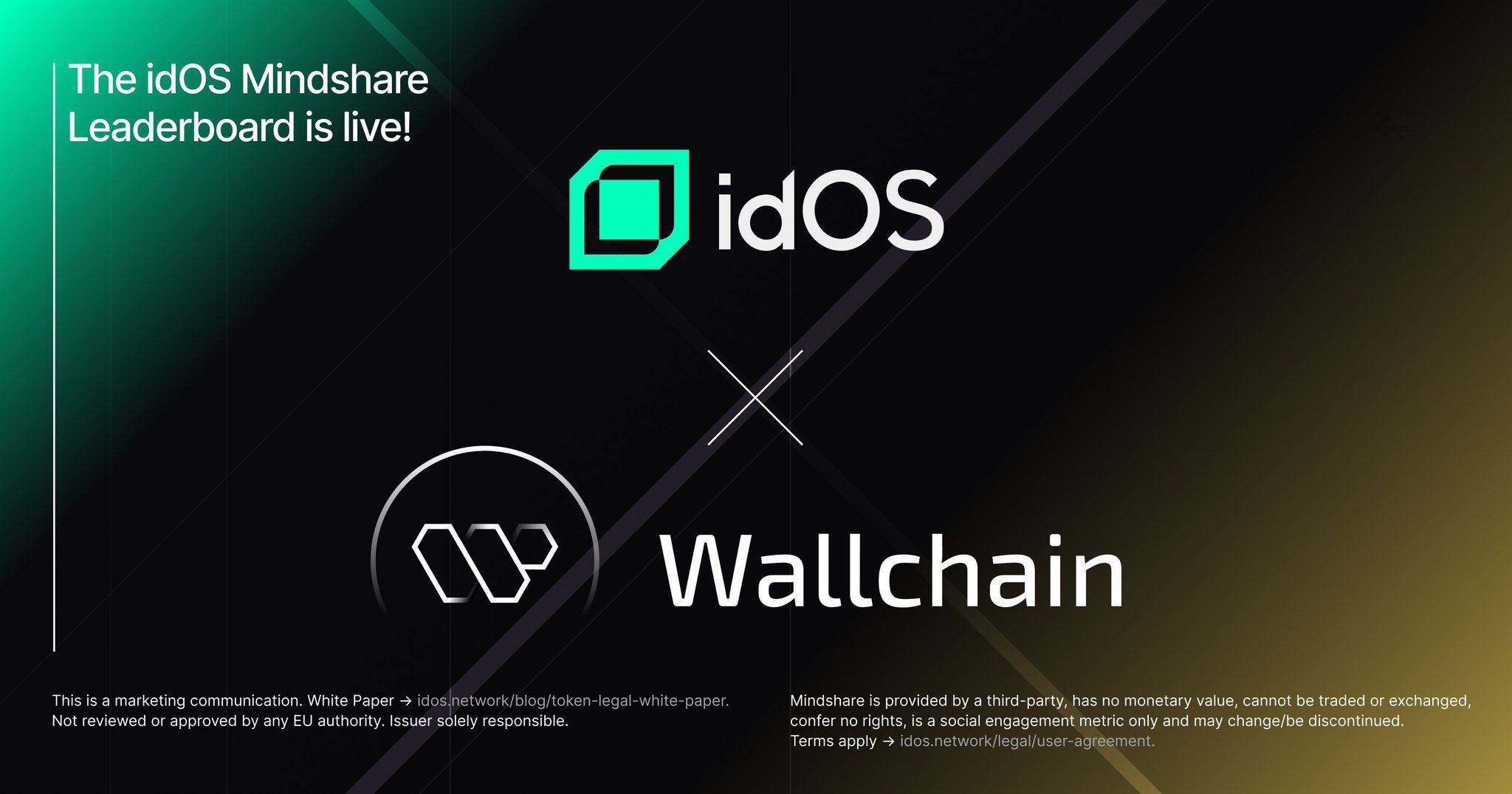
Reusable KYC Across Multiple dApps: idOS enables users to complete KYC verification once and reuse their credentials seamlessly across a wide range of decentralized applications, eliminating redundant onboarding processes.
-
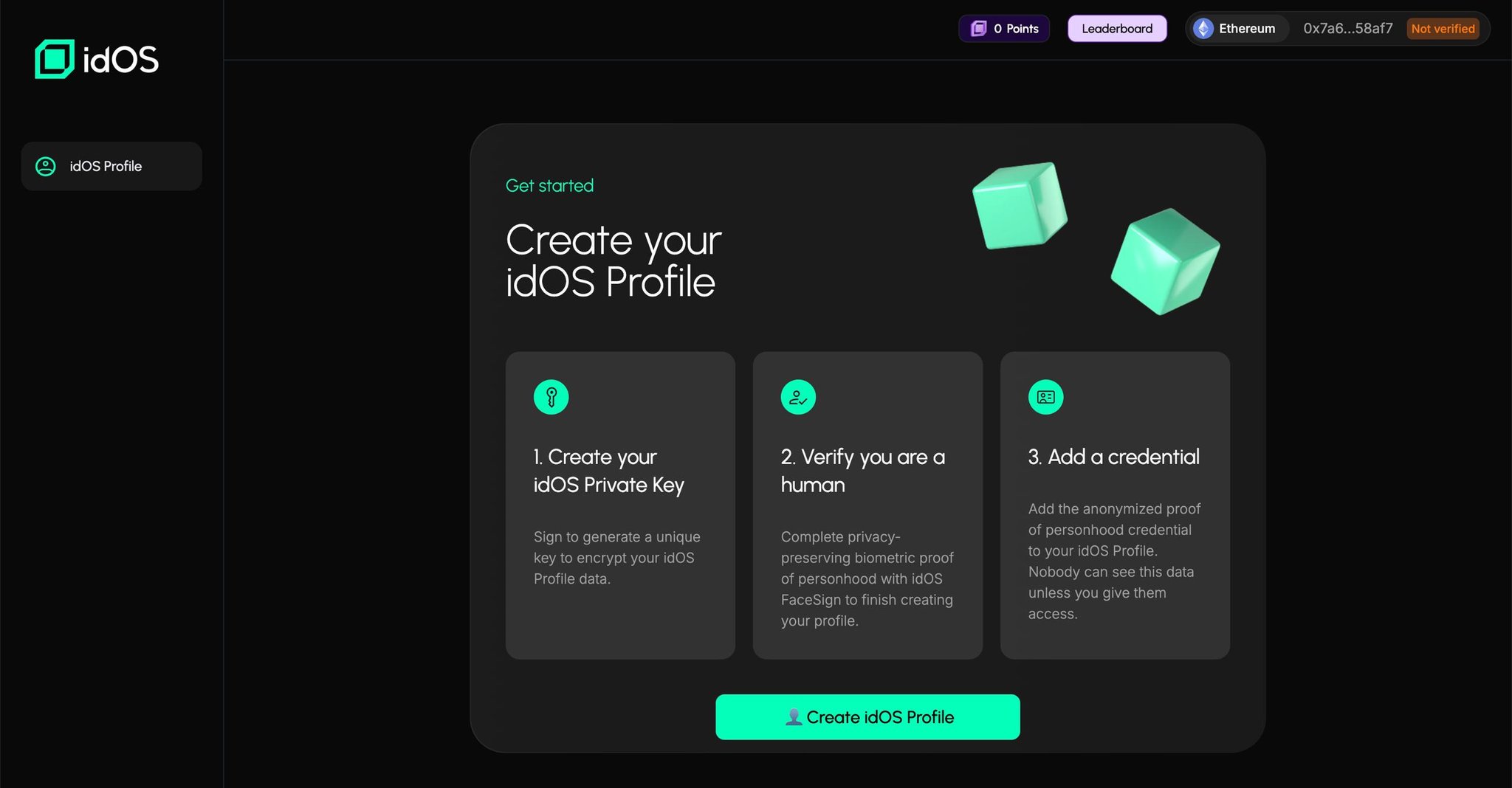
Self-Sovereign Identity Management: Users maintain full control over their encrypted identity data, deciding who can access it and for how long, in compliance with GDPR and other data protection standards.
-
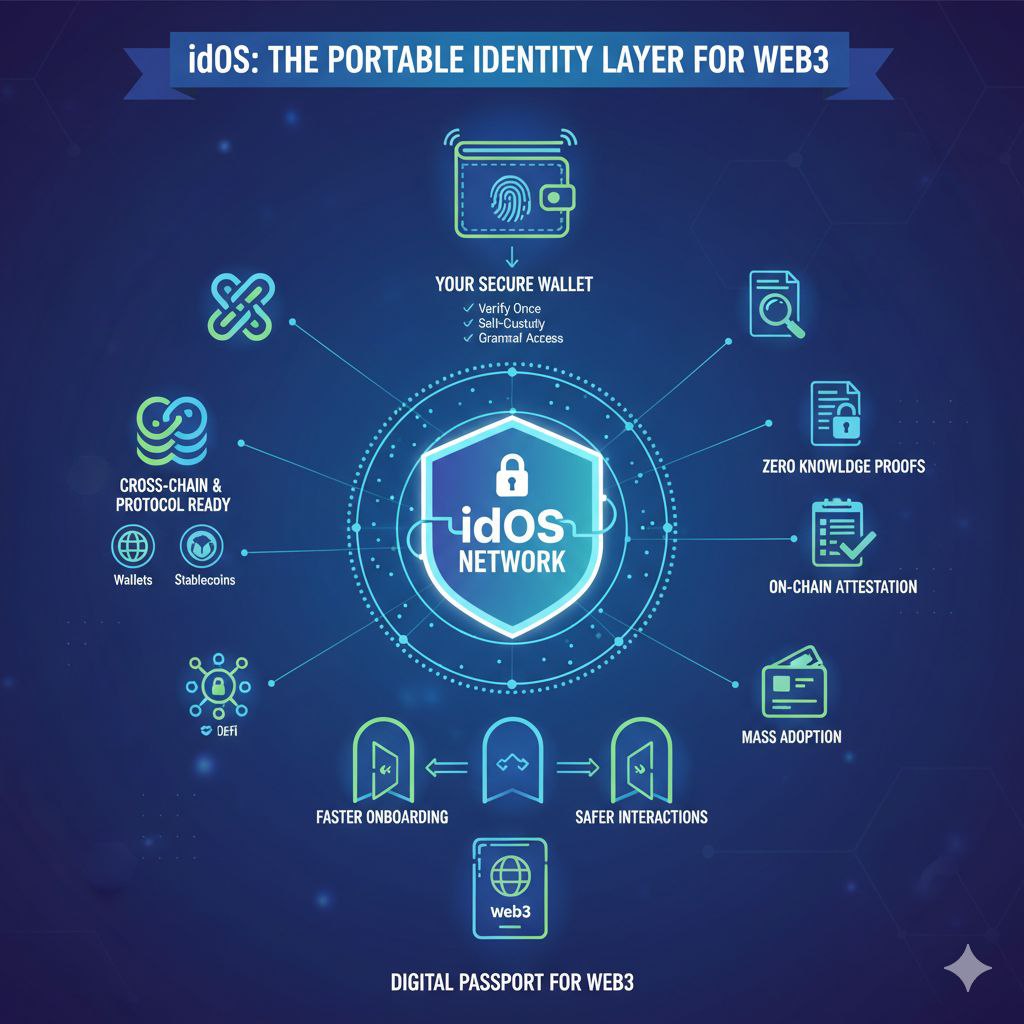
Cross-Chain Identity Portability: The chain-agnostic design of idOS allows users to carry their verified identity across different blockchain ecosystems, enabling frictionless access to services on Ethereum, Solana, and more.
-
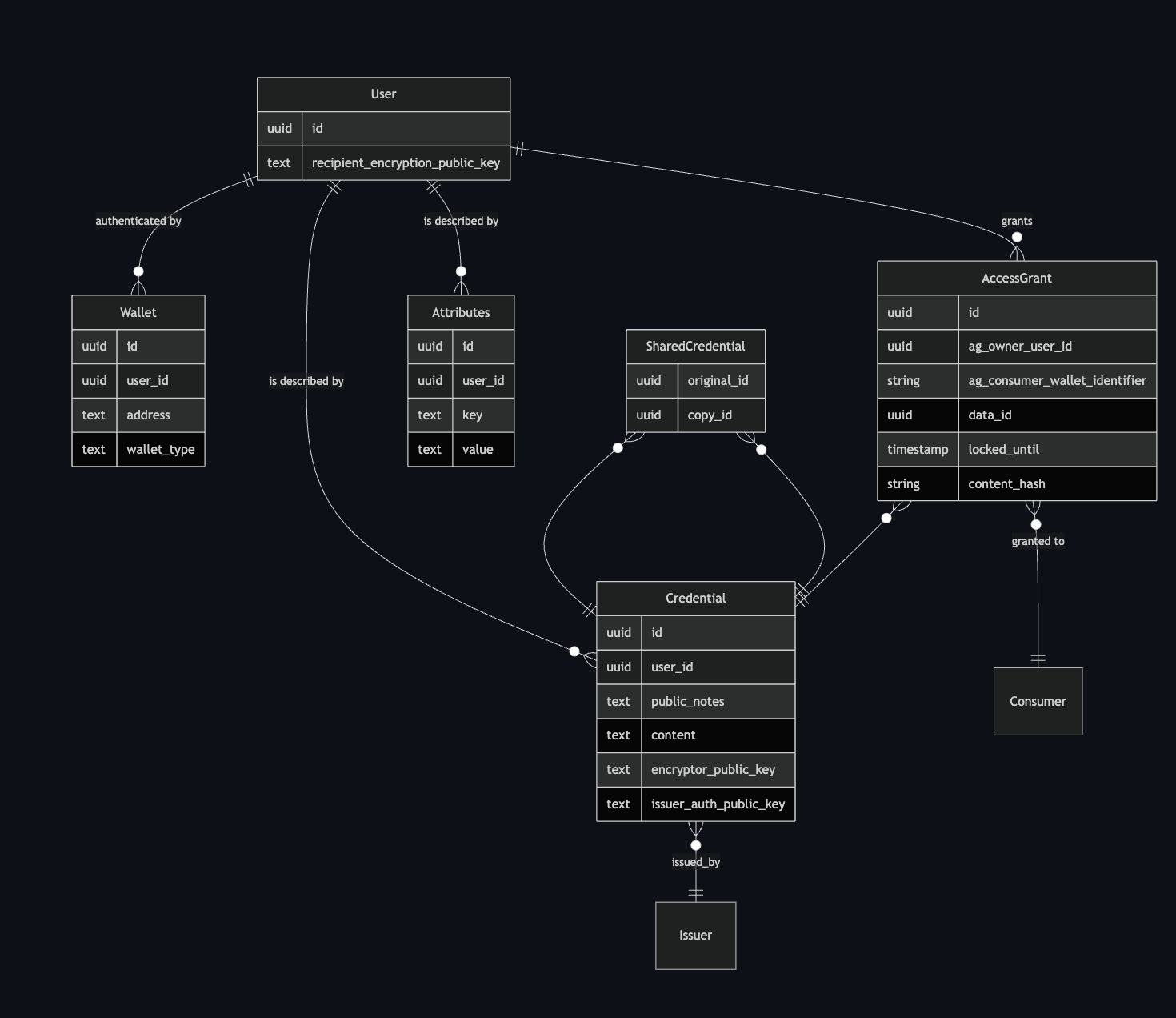
Secure Data Storage and Access: With decentralized, encrypted storage and multi-party computation (MPC) for key management, idOS ensures that sensitive identity data remains secure and always available, even if some nodes go offline.
-
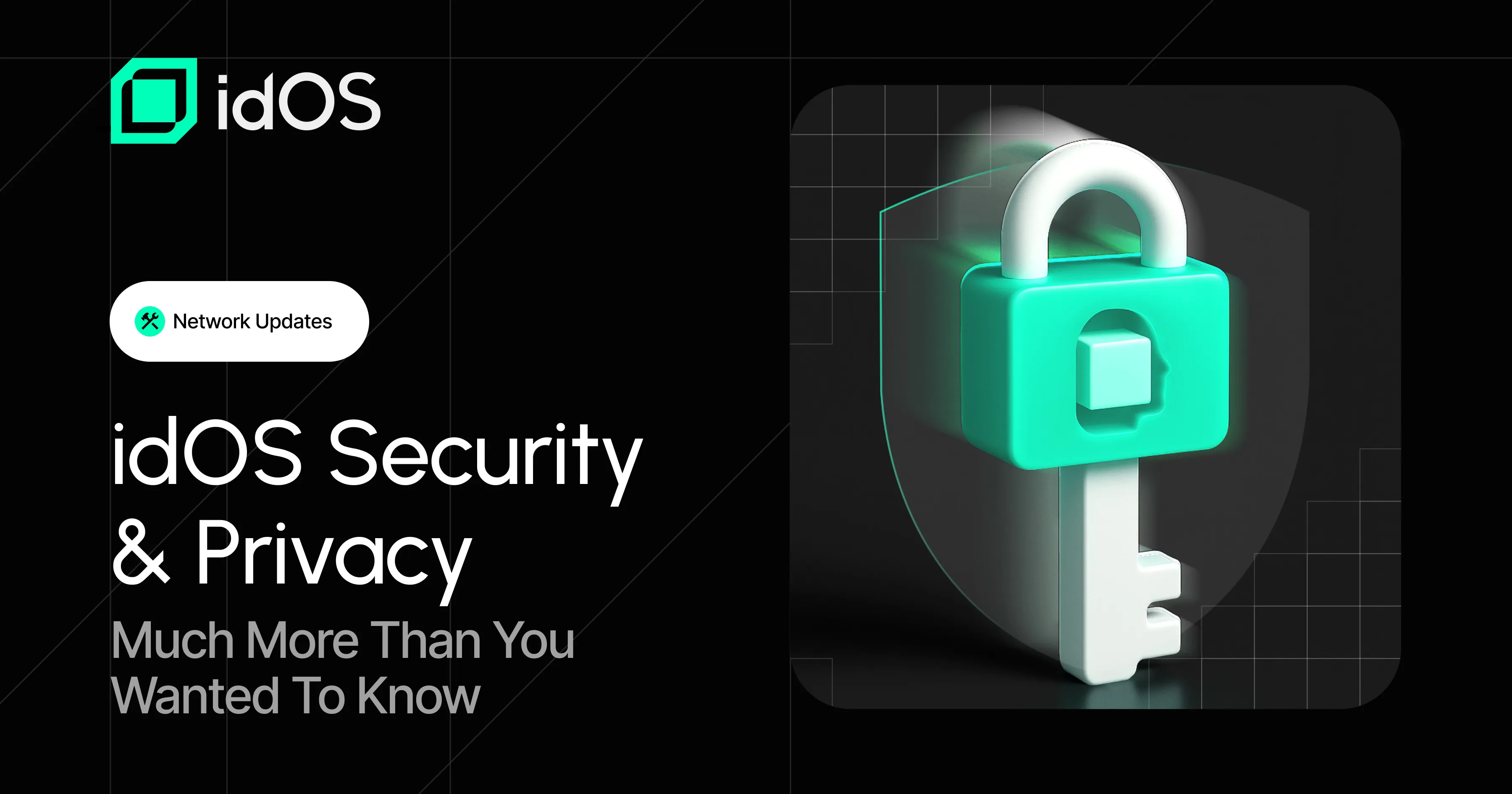
Regulatory Compliance for dApps and Platforms: idOS provides dApps and platforms with a streamlined way to meet AML and KYC regulatory requirements by allowing access to verified user data without storing it themselves, reducing legal and operational risks.
Ultimately, the idOS Network redefines what is possible for decentralized KYC in Web3. By abstracting away repetitive verifications, embracing cross-chain interoperability, and anchoring trust in cryptographic guarantees, idOS paves the way for a more inclusive and secure digital economy. As adoption accelerates, expect reusable KYC and self-sovereign identity to become the new baseline for onboarding and compliance across the decentralized landscape.








